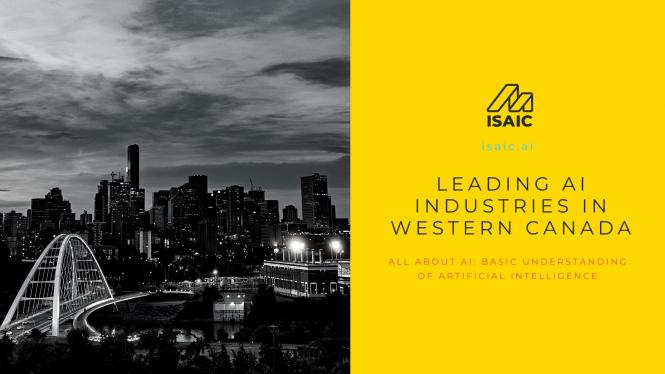According to a PwC survey, about 84% of Canadian CEOs agree that AI will change the businesses within the next 5 years. Which companies are ‘winning’ the race to AI adoption and what does the market look like? In this article, we’ll take the top-view approach in understanding artificial intelligence needs.

Background
Data scientists, blockchain developers, and robotics engineers are some of the emerging jobs for the future according to Forbes. Neighboring country, the United States, specifically looks at TensorFlow, Scikit-Learn, Python for AI practitioners while top universities offer Machine Learning, Natural Language Processing, and other advanced AI classes. As suppliers, the millennials and Gen Z seem to be embracing the technology changes.
On the demand side however, AI research and applications are in the exploratory phase. Policies and regulations are still in the grey area. Data housing for example, has different regulations in different countries. HIPAA governs the privacy and security of personal health information in the US particularly for healthcare providers, health insurers, and health exchange organizations. Canadian PIPEDA holds the accountability of using personal information on any organizations and requiring consent from the individuals.
However, this doesn’t slow down the growth of startups. CB Insights reported in 2020 that countries, such as China, Chile, Sweden, Israel have the top startups. While not all of them use AI, they are utilizing technology to disrupt the industries.
In Canada, we’re seeing provinces investing in AI. British Columbia, Alberta, Saskatchewan, Ontario, Quebec, and Nova Scotia all have AI/ML research and talents. AMII for example, received $100 million funding for a new office in Calgary while the Fed invested $125 million to the University of Alberta in Edmonton. Clearly, AI is here to stay and evolve.
The Big Idea
Now here comes the million dollar question: what is the predicted market size for AI? PwC predicted that it would contribute about $15 trillion to the global economy by 2030. Essentially, AI helps the economy by increasing demand and improves productivity. A manufacturing company, for example, can utilize AI to automate processes and to analyze defects more effectively. Meanwhile, an entertainment company can use personalized algorithms to better the user experience and therefore, increase customer’s demand. In Canada specifically, we can expect 23% GDP growth from 2016 to 2035 with the help of AI technology.
We then compare the leading countries in AI advancement and the foreign direct investment they collect. United States is still number one with 4,500 public AI companies in 2018 and $25.2 billion investment in 2019. China comes next with more than 1,000 AI companies and $5 billion investment. Canada on the other hand received $885 million investment.
Details
Today, we apply AI and Machine Learning to different industries, namely agriculture, banking, energy, entertainment (gaming, media), healthcare, life sciences, and more.
Agriculture
The Netherlands, as reported by World Economic Forum, has been noted as the most sustainable vegetable producer. Grodan specifically designed innovative slabs for tomatoes, cucumbers, eggplants, and other vegetables. Now, in Canada we have Precision.AI with AI computer vision on their drones. The purpose is to spray the weed and nothing else. ISAIC’s client, Farmer’s Edge, focuses on an all-in-one digital platform for farming (including weather and watering systems).
Banking
If you haven’t noticed already, Royal Bank of Canada (RBC) and Alberta Treasury Branches (ATB) have developed artificial intelligence hubs. Borealis.AI from RBC pursues innovation with products, such as Aiden for electronic trading. ATB Ventures created proof, a digital wallet, as well as oliu for credential management platform.
Energy
Did you know that energy AI startups focus on renewable and sustainable energy? Take Enbala from Vancouver. Founded in 2003, it offers DERMS and VPPs to support multi-layered energy, information, and market flows. Invenia from Winnipeg focuses on reducing energy waste because as we know, energy cannot be stored efficiently. Calgary-based Sawback Technologies offers near-surface remote sensing that can be useful for oil drilling.
Entertainment
Looking at Facebook’s Oculus VR and Netflix’ personalized algorithms, we can see how entertainment will change. We see how voice-search and chatbots use Natural Language Processing for better user experience. And even real-time sports, such as football, can utilize AI for injury minimization and performance boosting. In Canada, we have Montreal-based Zú who redefines entertainment.
Healthcare
We know how trackers come in handy. FitBit, Apple Watch, Samsung Galaxy Watch collect heartbit, steps, sleep hours data and inform us about our performance. In particular, FitBit partnered with the Medicaid plan in 2020. The idea is that patients’ health statistics now are available real-time as opposed to one-time medical checkup.
Some popular Canadian healthcare startups are located in Toronto. For Western Canada, we can take Drugbank as an example who’s using ISAIC services. Drugbank is the place for you to go to when you want to know about a drug, such as tylenol.
Infrastructure and Support
In order to realize the AI future, you will need capable resources. At ISAIC, we support Western Canadian SMEs and startups throughout their AI adoption journey. Your company can start investing in the IT infrastructure, by planning ahead and consulting with ISAIC.



